 Petzlover
PetzloverOsterreichischer Kurzhaariger Pinscher is originated from Austria but Russian Setter is originated from Russia. Osterreichischer Kurzhaariger Pinscher may grow 18 cm / 7 inches shorter than Russian Setter. Osterreichischer Kurzhaariger Pinscher may weigh 12 kg / 26 pounds lesser than Russian Setter. Both Osterreichischer Kurzhaariger Pinscher and Russian Setter has same life span. Both Osterreichischer Kurzhaariger Pinscher and Russian Setter has almost same litter size. Both Osterreichischer Kurzhaariger Pinscher and Russian Setter requires Moderate Maintenance.
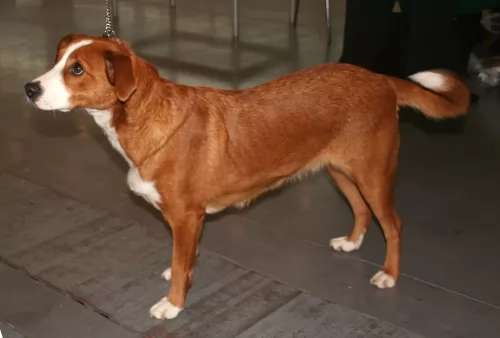 Hailing from Austria, the Osterreichischer Kurzhaariger Pinscher, better known as the Austrian Short-Haired Pinscher has always been depicted on paintings from the Baroque period.
Hailing from Austria, the Osterreichischer Kurzhaariger Pinscher, better known as the Austrian Short-Haired Pinscher has always been depicted on paintings from the Baroque period.
The dog is a terrier-type canine and has always been used as a watchdog but he was also used to hunt because of the terrier qualities he possesses.
This dog has always been used for working on farms. Breeding of this dog started in 1921 and the dog was recognized by the United Kennel Club in 2006.
People often think it is ridiculous that a Setter dog comes from Russia. It is believed that the Russians did have some kind of Griffon and the word Pointer is also often translated as Setter.
It is believed that the Russian Setter is one of the ancestors of the Wire-haired Pointing Griffon and that it possibly shared an ancestry with the German wire-haired and broken-haired pointers.
References to Russian Setters were fairly common in the 19th century, but there is such contradictory information that it is hard to get good information on the dogs. The Russian Setter is believed to have existed before the Russian Revolution resembling the English Setter. Dog experts tell us the dog no longer exists.
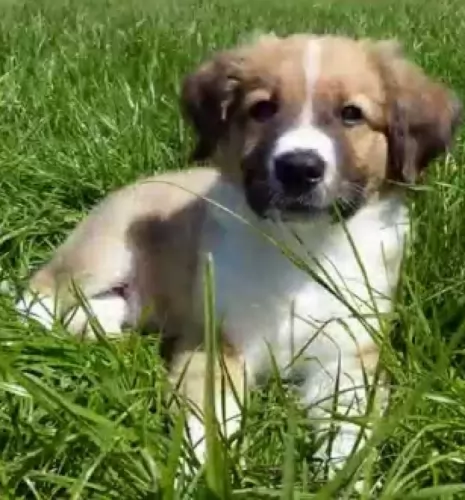 As a medium sized dog, both males and females stand at between 42 and 50cm in height and the dog weighs roughly between 14 and 20kg.
As a medium sized dog, both males and females stand at between 42 and 50cm in height and the dog weighs roughly between 14 and 20kg.
The coat is shortish, dense and smooth and is essentially black and tan with some white, fawn or brindle. The ears of the dog are fairly short and they look as though they wanted to be erect but then decided to be floppy. The nose is black and the eyes dark brown.
The tail is usually docked but when it is left long, it curls over the back. If you want your dog to be bred you can expect between 4 – 6 puppies.
These are playful dogs, getting on well with their human families and wanting to get involved in their activities. They are suspicious of strangers. They are good with kids, making them a good playmate, but they don’t like small children being allowed to climb over them.
They are able to get along well with any other pets in the house. It would be to your benefit to have the dog trained and socialized as he becomes obedient and good around people in social settings. He is an intelligent dog and will find training easy.
They also take their role as guardian and protector seriously.Because he was bred to be a farm dog, he wouldn’t e able to adapt to life on a tiny property in the city.
In terms of appearance, it was John Henry Walsh who said that the Russian Setter was a dog hidden by its long, woolly matted coat.It seems to have been a medium sized dog with an elegant appearance. It seems the dog came in two varieties - the curly coated liver coated dogs and the fawn colored dogs which are straight coated.
Because there is very little information on these dogs, we assume they were between 57 – 68cm in height and between 27 and 32kg in weight. The coat was no doubt in colours such as grey, reddish-brown with some black and white and shortish and wiry. The ears were floppy,and the face no doubt had some longer hair around the muzzle.
Nobody seems to know exactly what the temperament of this dog was, but when you look at some of his ancestors you can assume that he was strong-willed, confident and a skilled hunter.
He would have required a lot of exercise too. He was lively and energetic. Because he had Pointer in him you can be sure that he would have been intelligent so that he could be trained and socialized.
He would have been keen to learn with an owner who was firm and consistent in his treatment of him. He is a dog most happiest when he can spend time with his human family, a most loyal and devoted family friend, capable of getting on well with children and pets in the home.
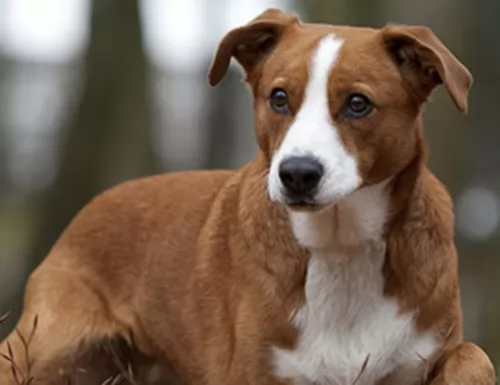 Have your Osterreichischer Kurzhaariger Pinscher trained and socialized if you want him to be amicable and obedient around you and your visitors.
Have your Osterreichischer Kurzhaariger Pinscher trained and socialized if you want him to be amicable and obedient around you and your visitors.
He does well with a human family who are firm, kind and patient with him. He loves to be kept busy with both mental and physical exercise, thriving on challenging activities, and he will become frustrated if he is left day after day just to lie around.
Take him with you on walks, buy him nice chewy, stimulating toys, throw a ball or frisbee with him and include him in your activities.
This is a dog more suited to life in the countryside as opposed to life in the city. Care well for this splendid family pet and you’ll quickly begin to see why dogs like him are known as man’s best friend.
It appears, according to records that the Russian Setter has come and gone. However he would have been a calm, gentle pet with running ad hunting keeping him happy. He would therefore have required a lot of exercise.
We can assume that according to the few records that there are, that this was an affable, pleasing dog breed which made a great family pet.
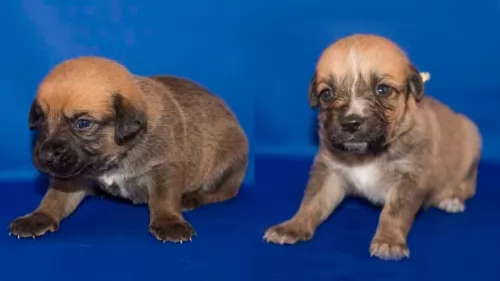 The Austrian Short-haired Pinscher is a robust kind of dog that isn’t going to have you rushing to the vet very often. True, he does have some hereditary health issues but it is highly unlikely that you will find these health issues in your pet.
The Austrian Short-haired Pinscher is a robust kind of dog that isn’t going to have you rushing to the vet very often. True, he does have some hereditary health issues but it is highly unlikely that you will find these health issues in your pet.
Nonetheless it pays to know about one of the more serious conditions -
This is a heart disease that is present from birth and could have been passed down from the parent dog to the puppy. A congenital heart defect occurs as a malformation of any valve, with the most common congenital heart diseases in dogs being patent ductus arteriosus, pulmonic stenosis as well as subaortic stenosis, all potentially inherited defects.
Sometimes a dog can live a fairly normal life with this disease but other times there are complications which can lead to congestive heart failure and atrial fibrillation, causing symptoms such as difficulty with breathing, cough and weakness. Your dog will need to get to the vet to discuss treatment options.
The Russian Setter had an average lifespan of 10 – 14 which is a fairly good innings for a dog. Nonetheless you would have had to be aware of some common dog problem. These dogs were prone to major health issues such as both hip and elbow dysplasia, deafness, epilepsy and hypothyroidism.
The thyroid glands produce hormones that affect the function of many parts of the body. Dogs with this illness have a low production of thyroid hormones.
This disease is mainly caused by inflammation or shrinkage of the thyroid gland. The most common signs of low thyroid in dogs is thinning of the fur, the coat is dull, there is weight gain and excess shedding. The dog doesn’t tolerate cold well either. These dogs also often have ear infections.
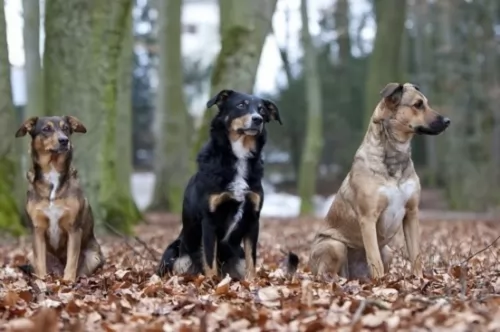 They need quite a lot of exercise, and even though they can adopt to life in the countryside or the city, they will require regular walks, ball- and rope games to prevent them becoming bored, frustrated and destructive.
They need quite a lot of exercise, and even though they can adopt to life in the countryside or the city, they will require regular walks, ball- and rope games to prevent them becoming bored, frustrated and destructive.
The Austrian Short-haired Pinscher sheds quite a bit so he will need to be brushed at least twice a week to remove the loose hairs.
As a medium sized, energetic dog, you want to ensure you maintain your dogs energetic nature by providing him with excellent food.
Choose your commercially manufactured food carefully as some of them are of a poor quality and can actually be detrimental to your dog’s health. Choose a high quality kibble that has quality ingredients.
Home-made food such as boiled chicken, brown rice or pasta and vegetables such as carrots, spinach and sweet potatoes all chopped up and added to his kibble occasionally will do wonders for this dog. He will thrive on also getting in some raw meat from time to time.
Ensure a constant supply of fresh, cool water.
Whatever kind of coat the Russian Setter ad it would have required a brushing twice a week to keep it in top form.
The medium length floppy ears would have to be checked inside for ear infection.
His owners would have checked inside the mouth for any signs of rotten or bad teeth.
His nails would have required trimming.
Dogs need the best food there is to stay healthy. The Russian Terrier, if it were still around today, would have had the best commercially manufactured food there was.
You want to provide dogs with some good homemade food too. Dogs thrive on simplicity and consistency to avoid upsetting the stomach. Some home-cooked food such as boiled chicken, sweet potatoes, brown rice or pasta, carrots and spinach would be perfect for him. Chop the food up finely and add it into the dry kibble once or twice a week. Raw meat should also be added in when possible to promote good skin health.
Make sure your pet is never without a constant supply of fresh, cool water.